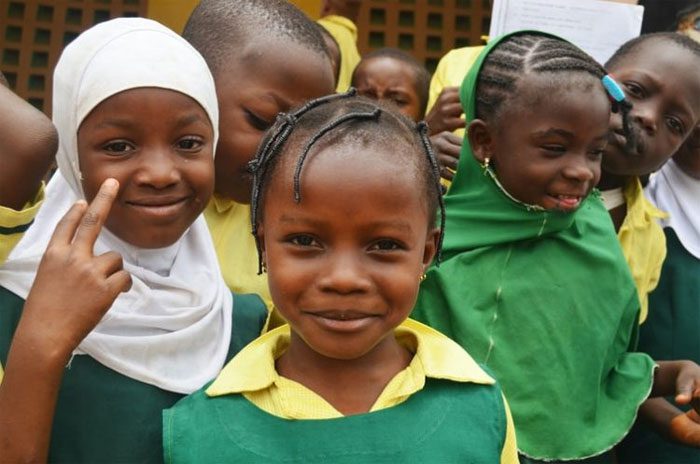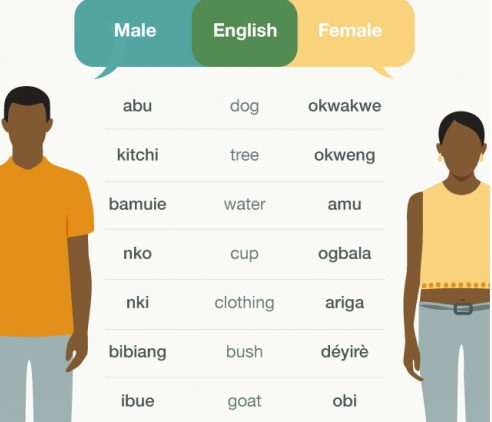In Ubang, a unique rural community in Nigeria, the locals believe that women come from Venus, while men come from Mars, and they speak two completely different languages.
It is hard to believe that men and women growing up in the same community could speak different languages. However, this unique cultural trait has existed in Ubang for a long time. The local government and the people of Ubang are striving to preserve their traditional culture in the face of the increasing popularity of English among the youth.

Children in Nigeria. (Photo: Unplash)
The exact ratio of words in the two distinct languages for men and women in Ubang is unclear. However, there are enough examples to show that people of different genders here speak two different languages. For instance, the word “clothes” is referred to as “nki” by men, while women say “ariga.” The term “trees” is pronounced “kitchi” by men, whereas women say “okweng.”
These words not only differ in pronunciation but also in spelling, yet they are understood to mean the same thing, as long as everyone can remember them.
Anthropologist Chi Chi Undie told the BBC, “It’s almost like two different vocabularies. There are many words that men and women share. However, there are also completely different words depending on gender. They do not sound the same and do not have the same spelling. They are entirely distinct words.”
Interestingly, both men and women in Ubang can understand each other perfectly. This may be because, while living with their parents, both boys and girls learn both languages. However, by the age of 10, boys are expected to speak the language designated for men.
“At a certain age, men realize they are not using their proper language. And when he begins to switch to the language for men, it signifies that he has matured. Otherwise, it is considered abnormal. No one tells that person that he must switch to speaking the men’s language,” said village chief Oliver Ibang.

The differences between male and female languages in Ubang. (Photo: BBC)
No one knows exactly when the tradition of using two languages in Ubang began or why it is used this way. However, most locals believe in a religious theory that God created Adam and Eve as the Ubang people and then bestowed upon them two different languages. God also intended to give each ethnic group two languages but realized there were not enough languages for all communities. This is a special gift for Ubang and makes this village distinct from all other communities in the world.
Meanwhile, anthropologist Chi Chi Undie believes that the use of two languages is a result of “a culture of two genders,” where men and women operate in separate spheres and live in distinct worlds, rarely coming together. However, she acknowledges that this is an uncertain hypothesis, as a culture of two genders exists in many regions of Africa, except for the different languages designated for men and women.
The people of Ubang take pride in their unique linguistic differences. However, today, as English is increasingly favored by the youth in Nigeria, the two-language culture of Ubang is at risk of disappearing forever. The reason is that the two types of languages in Ubang are not systematically compiled and written down, thus their future depends on the younger generation. Unfortunately, fewer and fewer young people can speak their mother tongue fluently.
To preserve linguistic values, many teachers in Ubang have called for implementing solutions such as publishing textbooks in the Ubang language, as well as novels and films.
The Nigerian Language Association has stated that 50 out of the 500 languages in the country could disappear in the future if conservation measures are not taken. Teaching Nigeria’s indigenous languages in schools is also part of the national education policy, aimed at emphasizing the importance of cultural preservation and promoting national unity.





















































